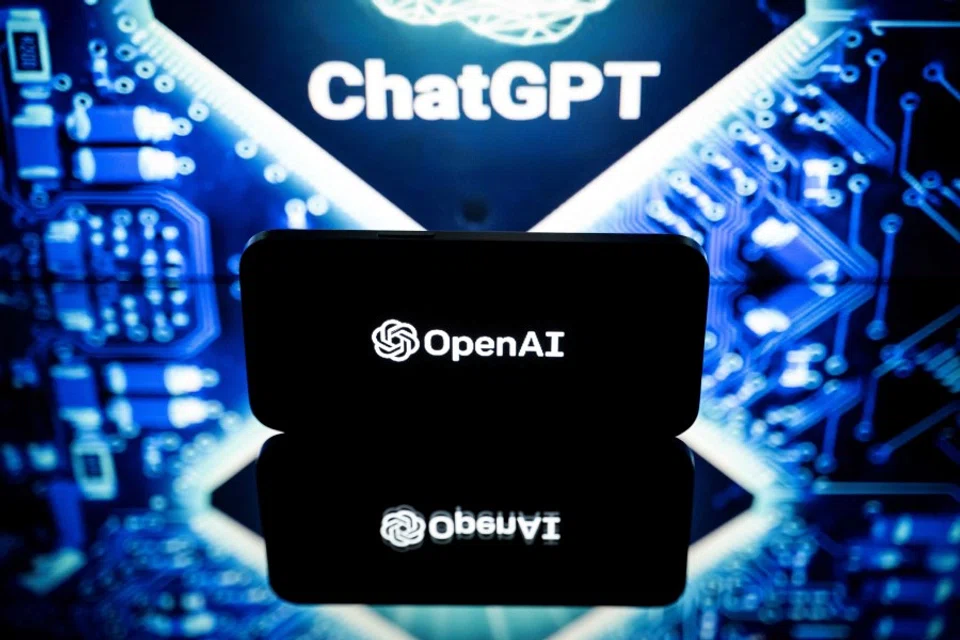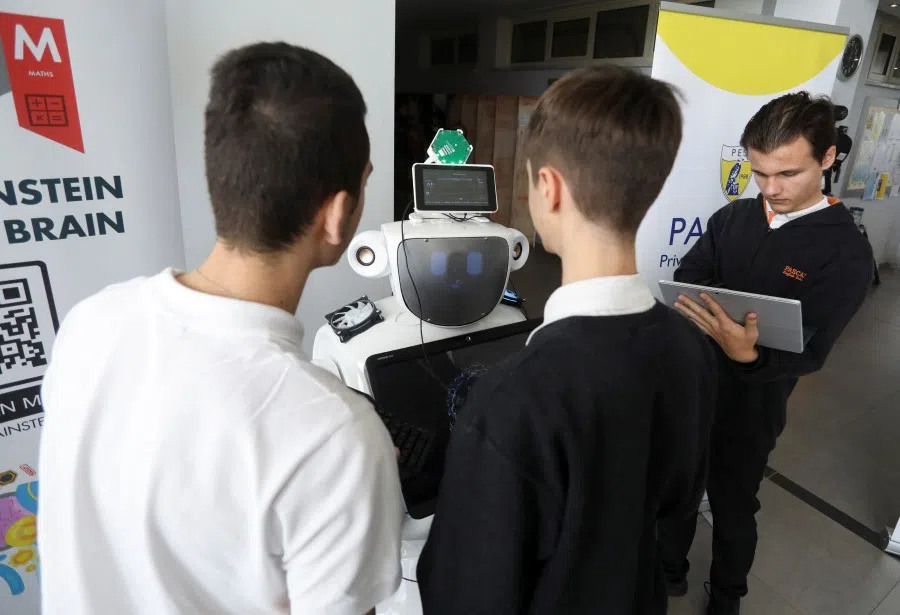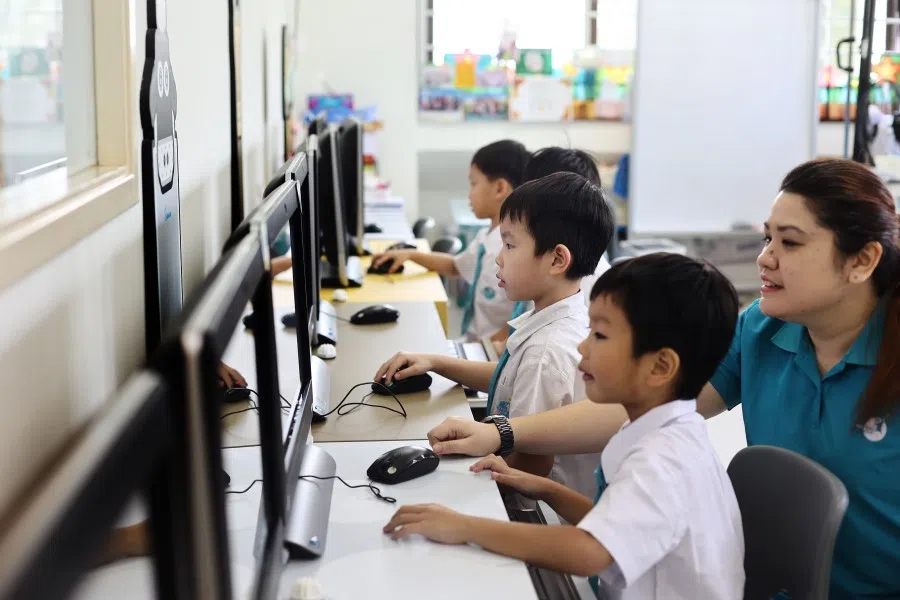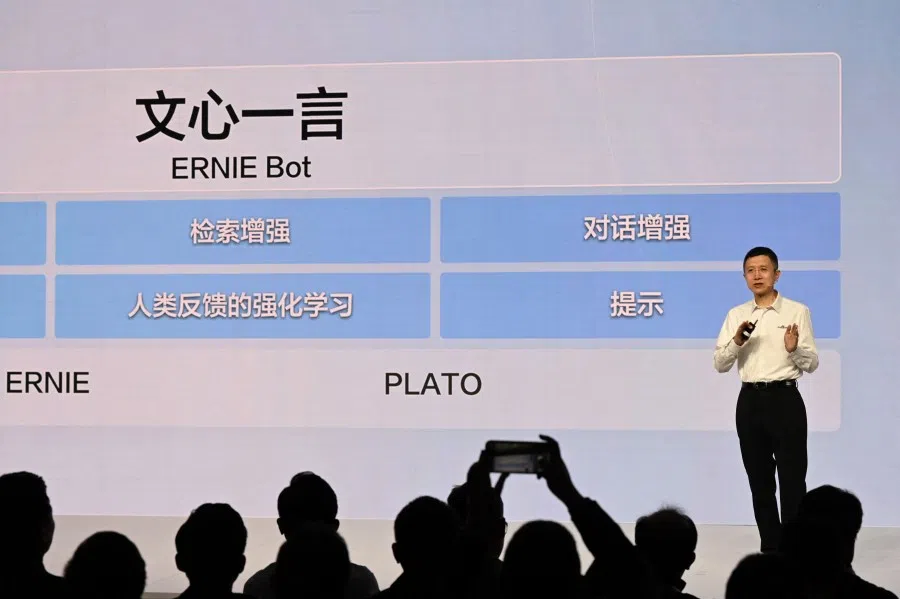ChatGPT will permeate all facets of our work and life
While advanced AI tools like ChatGPT are viewed as a potential threat to jobs, all is not lost as workers can adapt by learning to work with such technology to achieve better outcomes.

Since its launch in November last year, ChatGPT has gained global attention, amassing over 100 million users in less than two months. As a natural language processing (NLP) model developed by OpenAI, ChatGPT can be described as an artificial intelligence (AI) programme that can "understand" and "produce" human natural language.
Specifically, ChatGPT uses massive amounts of data to train an AI model to predict and generate words or sentences in human natural language. The advantages of ChatGPT lie in its ability to process a large amount of complex natural language and continuously learn and optimise its language-understanding and language-generating capabilities.
In fact, many large companies have already implemented NLP technologies in practical business scenarios. Commercial products like Amazon's Alexa, Apple's Siri, and Google's Google Assistant all use similar NLP technologies. Many companies believe that ChatGPT technology will soon be applied in customer service, call centres, translation, automatic summarisation and other fields to provide users with more intelligent and convenient services.
Furthermore, research on ChatGPT is ever-evolving and deepening. From the initial GPT-1 to the current GPT-4, the model parameters of ChatGPT continue to increase, and the model's effectiveness is also improving. Researchers are also exploring novel ways to apply ChatGPT in scientific research, cultural creation and other fields, which is opening up new research directions and application areas.
Recent research from OpenAI reveals that around 80% of the US workforce could have at least 10% of their work tasks affected by the introduction of AI technologies like ChatGPT.
Impact on jobs and livelihoods
As ChatGPT AI technology continues to advance, people are becoming increasingly aware and wary of its potential impact on the job market. Many are asking questions such as "How will ChatGPT affect employment?" and "Will AI technologies like ChatGPT replace human workers?"
Recent research from OpenAI reveals that around 80% of the US workforce could have at least 10% of their work tasks affected by the introduction of AI technologies like ChatGPT. Similarly, a study by Goldman Sachs warns that breakthroughs in generative AI systems like ChatGPT could impact up to 300 million jobs worldwide. These are significant concerns that require further analysis and consideration as the technology continues to evolve.

The emergence of ChatGPT indeed brings about potential risks and uncertainties to some industries. Firstly, ChatGPT's automation and intelligence features may replace some traditional jobs, including text editing, translation and customer service, which could lead to job losses for some workers.
Secondly, as ChatGPT and other AI technologies continue to improve, the demand for talent in the job market is likely to shift, favouring new talents with relevant skills and knowledge. This shift may pose a challenge to those with traditional skills. Additionally, as ChatGPT becomes more popular, some simple and repetitive work may become more automated, potentially reducing the value of these jobs and affecting employment opportunities and salary levels for related workers.
It is worth noting that certain industries that rely heavily on customer communication and text processing tasks, such as customer service, insurance and retail industries are likely to be affected more by ChatGPT. Conversely, industries such as manufacturing, construction, agriculture, and transportation and logistics are relatively less affected by ChatGPT. This is because the nature of their work involves physical labour and complex problem-solving that cannot be easily automated by ChatGPT or other AI technologies at present.
...if one incorporates software and tooling built on top of large language models (LLMs) such as ChatGPT, 47-56% of all worker tasks in the US could be completed significantly faster at the same level of quality.
Bringing new opportunities
On the other hand, the emergence of ChatGPT also brings new opportunities and creates new job openings in industries. ChatGPT's automation and intelligence features can improve production efficiency, reduce costs, and enhance corporate competitiveness. This can enable companies to expand their business and create more job opportunities.
Moreover, ChatGPT can efficiently process a large amount of information, making it easier for people to obtain the required information quickly and accurately, thereby improving work efficiency and accuracy.
According to the latest research by OpenAI, if one incorporates software and tooling built on top of large language models (LLMs) such as ChatGPT, 47-56% of all worker tasks in the US could be completed significantly faster at the same level of quality. Furthermore, the development and applications of ChatGPT will create new job positions such as ChatGPT development, customisation, maintenance and optimisation, thereby providing more job opportunities.
The applications of ChatGPT will also drive the development of some emerging fields, such as human-machine interaction, natural language processing, intelligent customer service, etc, which will create more job opportunities and improve the skills and career development prospects of personnel engaged in these fields.
Living with ChatGPT
So, how should we better prepare ourselves for the opportunities and challenges brought by ChatGPT?
Firstly, we need to continuously learn and improve our own skills to meet the challenges posed by ChatGPT. This includes staying up to date on new technologies and knowledge related to ChatGPT, and continuously improving our professional abilities and comprehensive qualities.
This requires understanding the strengths and weaknesses of ChatGPT and learning how to use its advantages to enhance our own work efficiency and quality.

Secondly, while ChatGPT is capable of completing many tasks that are difficult for humans, it cannot completely replace human skills and expertise. It is essential to learn to collaborate with ChatGPT and master the ability to work with it in a complementary manner. This requires understanding the strengths and weaknesses of ChatGPT and learning how to use its advantages to enhance our own work efficiency and quality.
Thirdly, with the development of ChatGPT, some traditional occupations may be affected or even become obsolete. However, new professions and industries will also emerge, offering new opportunities. To meet the challenges of the future, we need to explore new career fields, acquire new knowledge and technologies, and actively seek new job opportunities.
Without a doubt, ChatGPT and its underlying LLM technology represent a significant breakthrough in the field of artificial intelligence. Bill Gates, the co-founder of Microsoft, recently stated that OpenAI's GPT AI model is the most revolutionary advance in technology since he first saw a modern graphical user interface (GUI) environment in 1980.
China and other countries coming up with own versions
This trend is being seen around the world, with rapid growth in the development of ChatGPT and LLM technologies in various countries. Many countries are conducting extensive research and development in this field.
The US is the global leader in ChatGPT and LLM research. Top universities and technology companies in the US house many stellar researchers and technical teams, who have made important research and application achievements in the LLM field.
In addition to OpenAI's ChatGPT, Microsoft, OpenAI's main investor, has announced the full integration of GPT technology into its various product lines such as MS Office software and Bing search engine. Meanwhile, Google's team has also released Bard, a product benchmarking against ChatGPT, and Meta's team has developed LLaMA, both of which are leading players in the LLM field.
These cutting-edge technologies will continue to progress rapidly in the coming years, eventually permeating all facets of our work and life.

As an important force in the global AI field, Chinese companies and universities are also actively investing in LLM technologies and ChatGPT applications, especially in the field of Chinese natural language processing. For example, Baidu recently launched its own "ERNIE Bot (Wenxin Yiyan)" platform to compete with ChatGPT. Other companies, including Alibaba, Huawei, JD.com, and Tencent, have also announced that they have conducted in-depth research in the field of large models and are expected to release their LLM models in near future.
Undoubtedly, ChatGPT and its related LLM technologies and applications hold vast potential for development in the future. These cutting-edge technologies will continue to progress rapidly in the coming years, eventually permeating all facets of our work and life. As we anticipate a new era of artificial intelligence, it's crucial that we adopt an open-minded approach, prepare ourselves well, and embrace these advancements with open arms.



![[Big read] When the Arctic opens, what happens to Singapore?](https://cassette.sphdigital.com.sg/image/thinkchina/da65edebca34645c711c55e83e9877109b3c53847ebb1305573974651df1d13a)


![[Video] George Yeo: America’s deep pain — and why China won’t colonise](https://cassette.sphdigital.com.sg/image/thinkchina/15083e45d96c12390bdea6af2daf19fd9fcd875aa44a0f92796f34e3dad561cc)